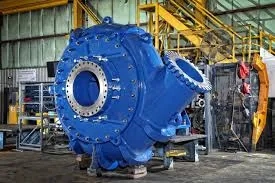Punjabi
- Afrikaans
- Albanian
- Amharic
- Arabic
- Armenian
- Azerbaijani
- Basque
- Belarusian
- Bengali
- Bosnian
- Bulgarian
- Catalan
- Cebuano
- Corsican
- Croatian
- Czech
- Danish
- Dutch
- English
- Esperanto
- Estonian
- Finnish
- French
- Frisian
- Galician
- Georgian
- German
- Greek
- Gujarati
- Haitian Creole
- hausa
- hawaiian
- Hebrew
- Hindi
- Miao
- Hungarian
- Icelandic
- igbo
- Indonesian
- irish
- Italian
- Japanese
- Javanese
- Kannada
- kazakh
- Khmer
- Rwandese
- Korean
- Kurdish
- Kyrgyz
- Lao
- Latin
- Latvian
- Lithuanian
- Luxembourgish
- Macedonian
- Malgashi
- Malay
- Malayalam
- Maltese
- Maori
- Marathi
- Mongolian
- Myanmar
- Nepali
- Norwegian
- Norwegian
- Occitan
- Pashto
- Persian
- Polish
- Portuguese
- Punjabi
- Romanian
- Russian
- Samoan
- Scottish Gaelic
- Serbian
- Sesotho
- Shona
- Sindhi
- Sinhala
- Slovak
- Slovenian
- Somali
- Spanish
- Sundanese
- Swahili
- Swedish
- Tagalog
- Tajik
- Tamil
- Tatar
- Telugu
- Thai
- Turkish
- Turkmen
- Ukrainian
- Urdu
- Uighur
- Uzbek
- Vietnamese
- Welsh
- Bantu
- Yiddish
- Yoruba
- Zulu
Telephone: +86 13120555503
Email: frank@cypump.com
ਸਤੰ. . 05, 2024 18:39 Back to list
Reliable Septic Tank Pump System Installation and Maintenance
Understanding Septic Tank Pump Systems
Septic tank pump systems play a crucial role in managing wastewater for homes that are not connected to a municipal sewer system. These systems provide a reliable and efficient way to treat and disperse wastewater, promoting environmental health and sanitation. Understanding how these systems operate and the importance of regular maintenance can help homeowners ensure their longevity and effectiveness.
A typical septic system consists of a septic tank and a drain field. Wastewater from the home flows into the septic tank, where solids settle at the bottom while lighter materials like grease float to the top, forming a scum layer. The middle layer of treated water is then discharged into the drain field for further treatment by soil microorganisms. However, in some situations, gravity alone is insufficient to ensure proper drainage, especially in areas with high water tables or when the drain field is located at a lower elevation than the tank. This is where a pump system becomes necessary.
Septic pump systems utilize a submersible pump that is situated within the septic tank. When the wastewater reaches a certain level in the tank, the pump is activated to move the effluent to the drain field. This process prevents sewage from backing up into the home and helps maintain a constant flow of treated water to the soil. Depending on local regulations and the specific design of the septic system, pump systems can either be on-demand or timed to operate at specific intervals.
septic tank pump system

Regular maintenance of a septic tank pump system is vital to its performance. Homeowners should schedule routine inspections and pump the tank every three to five years, depending on the household size and water usage. Failure to do so can lead to clogs, system failures, and costly repairs. Additionally, being mindful of what goes down the drain can significantly impact the system's health; for example, avoiding flushing non-biodegradable items or using excessive amounts of harsh chemicals can preserve the beneficial bacteria necessary for waste breakdown.
Another aspect to consider is the energy consumption of septic pumps. Since these pumps run on electricity, choosing energy-efficient models can help reduce operating costs. Homeowners should also be aware of local regulations governing septic systems, as requirements can vary significantly from one area to another.
In conclusion, a septic tank pump system is a vital component of effective wastewater management for homes not connected to a municipal sewage system. By understanding how these systems work and committing to regular maintenance, homeowners can ensure that their septic systems function properly for years to come, safeguarding both their property and the surrounding environment.
-
Custom Drilling Mud and Slurry Pump Supplier - High Efficiency, Tailored Solutions
NewsJun.10,2025
-
Supply Vertical Submersible Sewage Pump High-Efficiency WQ/QW Pumps Supplier
NewsJun.10,2025
-
Premium Sewage Ejection System & Pumps Efficient Waste Removal
NewsJun.09,2025
-
Premium Wholesale Slurry Pump Impellers Durable & Efficient Slurry Handling
NewsJun.09,2025
-
Top Sewage Pump Companies Durable Industrial Solutions for Efficiency
NewsJun.09,2025
-
Heavy Duty Slurry Pumps - OEM High Performance & Bulk Wholesale
NewsJun.09,2025










